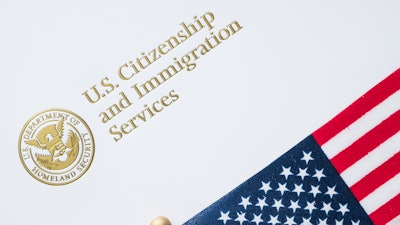
A U.S.-based chemical company is fighting to obtain a visa for a Ukrainian software developer who has spent years working on a complex computer system that the company considers crucial to its ability to do business.
In a federal lawsuit filed Friday, 3V Sigma USA Inc. says the Trump administration wrongly denied a visa for Mykhailo Soltys to spend three years implementing the system at the firm's production facility in Georgetown, South Carolina.
Soltys began working on the Enterprise Resource Planning system in 2016, and has developed highly specialized knowledge needed to make it functional, the firm said in the lawsuit. The software is needed to manage the company's supply chain, sales and marketing, production and other aspects of its business, the company said.
“3V considers a functional ERP system to be the backbone of the company's future success," it says in the lawsuit. “It is of paramount importance to 3V to fully implement the company's ERP system to ensure its continued operations in the United States.”
The company makes specialty chemicals used in many industries such as personal care, textiles and paper. It spent more than $1 million in consulting fees with another company in a failed attempt to implement the needed system before it found Soltys, the lawsuit states.
The company is asking a federal judge to order government officials to approve the visa.
Defendants include U.S. Citizenship and Immigration Services. The agency doesn't comment on pending litigation, spokeswoman Ana Santiago said in an email Monday.
As part of the visa application process, government officials called Soltys' duties “routine," saying they are commonly performed by industry professionals. It denied the visa for Soltys, who is a Ukrainian citizen.
Congress created the broad category of visa sought by the company in 1970 to enable U.S. companies with international operations to transfer key employees freely, the lawsuit states.






















